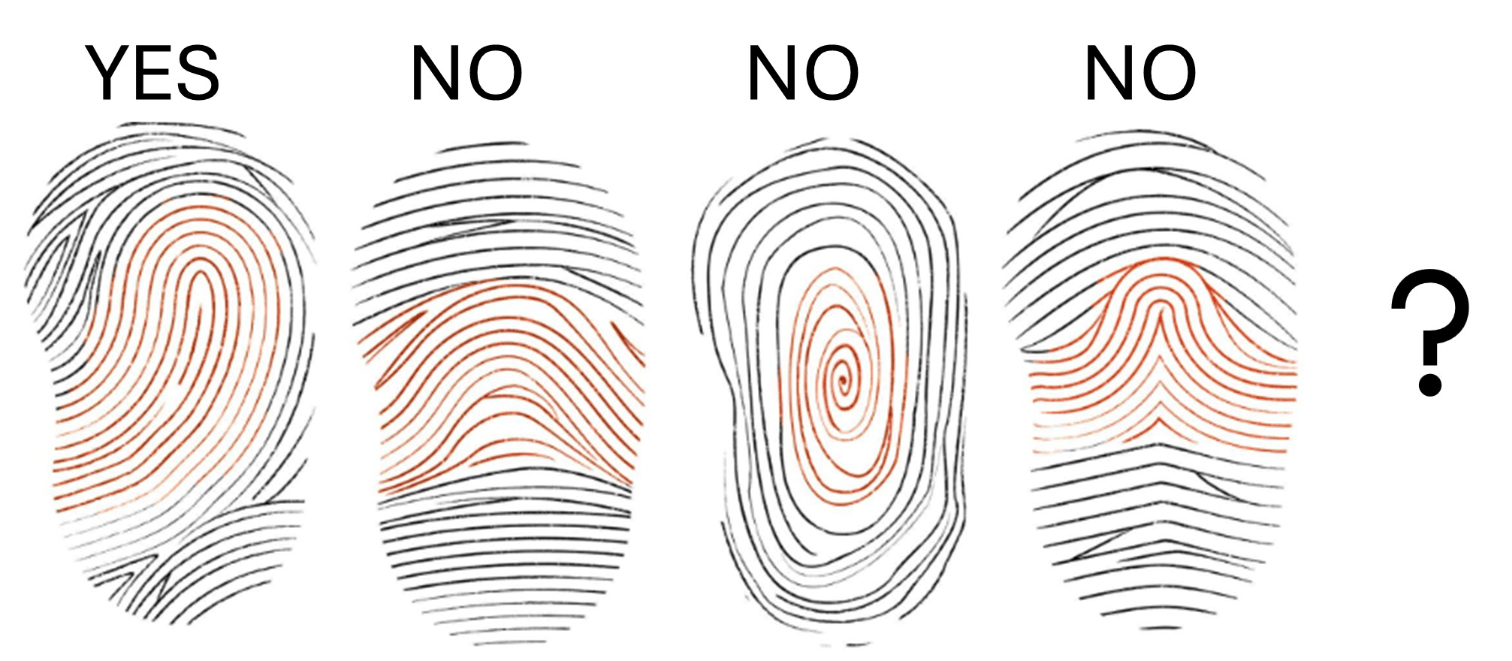Veins always carry _________________________.
blood toward the heart.
What is rigor mortis?
stiffening of the body
What is the job of white blood cells?
immunity - killing foreign cells
What are 4 commonly done vital signs at a clinic? (not weight/height)
temperature, pulse rate, resp rate, blood pressure (can sub oxygen saturation for one)
Microscopic analysis of hair reveals that it is not from a human; it is an animal hair.
Presumptive or Confirmatory?
Presumptive
Some vessels entering/exiting the heart have the word "pulmonary" which means ________.
having to do with the lungs.
What is algor mortis?
The cooling of the body after death until ambient temp is reached.
How does blood spatter help forensic investigators?
Can indicate direction, speed, and angle of blood
Taking old school blood pressure - what 2 things do you listen for?
hearing a pulse and then not hearing it.
What travels across the gel in gel electrophoresis?
DNA fragments
How are arteries and veins different structurally?
arteries are thicker walled as their contents are under pressure - OR - veins have valves.
What is liver mortis?
the pooling of non-circulating blood in lower lying areas.
What two things do platelets do?
stick to wound edges/form clots/release clotting factors (chemicals)
You see a nurse triaging an ill-looking patient. He puts a device on her finger and reads it. Then he listens with the stethoscope through her back. What body system is suffering?
Respiratory

LOOP
How many valves are in the heart and what is their purpose?
4, to prevent backflow.
When is a body in full rigor mortis?
about 12 hours. It begins to reverse after about 24.
Blood clotting is an example of a positive feedback mechanism. How are they different from negative feedback mechanisms?
PFMs amplify a stimulus, increasing its effect. NFMs counteract a stimulus to return to "normal."
Your doctor tells you your fever is both a good thing and a bad thing. Explain.
Fever is the body fighting an infection (good). It can be uncomfortable (bad) and if it is too high it can harm you (bad).
What does Locard's Exchange Principle state?
Every time contact is made, there is an exchange of materials.
What happens if there is a hole in the septum of the heart?
O2-rich and O2 poor blood will mix. Person may feel fatigued.
hrs = (98.4 - rectal.temp) / 1.5
At what time did he die if his temp is 89.4O at 7:00 PM?
1:00 PM
Who is the universal blood donor and why?
O because there are no surface antigens to activate the recipient's immune system.
The doctor has ordered a diagnostic test for a clinic patient. You are the professional conducting the test. What 3 things do you always do before beginning ANY procedure?
1. Introduce yourself - (name/title) 2. Confirm patient identity (name/DOB) 3. What you are going to do
When polygraph testing, your BP, heart and resp rates are monitored. What else do they monitor?
How is the left ventricle different from the right structurally and why?
larger/more muscular because it has to pump much farther
What else can the M.E. use in an autopsy to determine T.O.D.?
clouded corneas/stomach contents/insects
Describe how a blood draw at the clinic can help diagnose a condition?
glucose - diabetes / red blood cells - anemia etc. (there are so many examples)
There are 3 MAIN COMPONENTS of all doctor visits. All 3 help the doctor better understand your issue. They are:
vital signs, physical exam, interview/history
A forensic ___ would test a decedent's tissue sample for drugs or poisons.
toxicologist